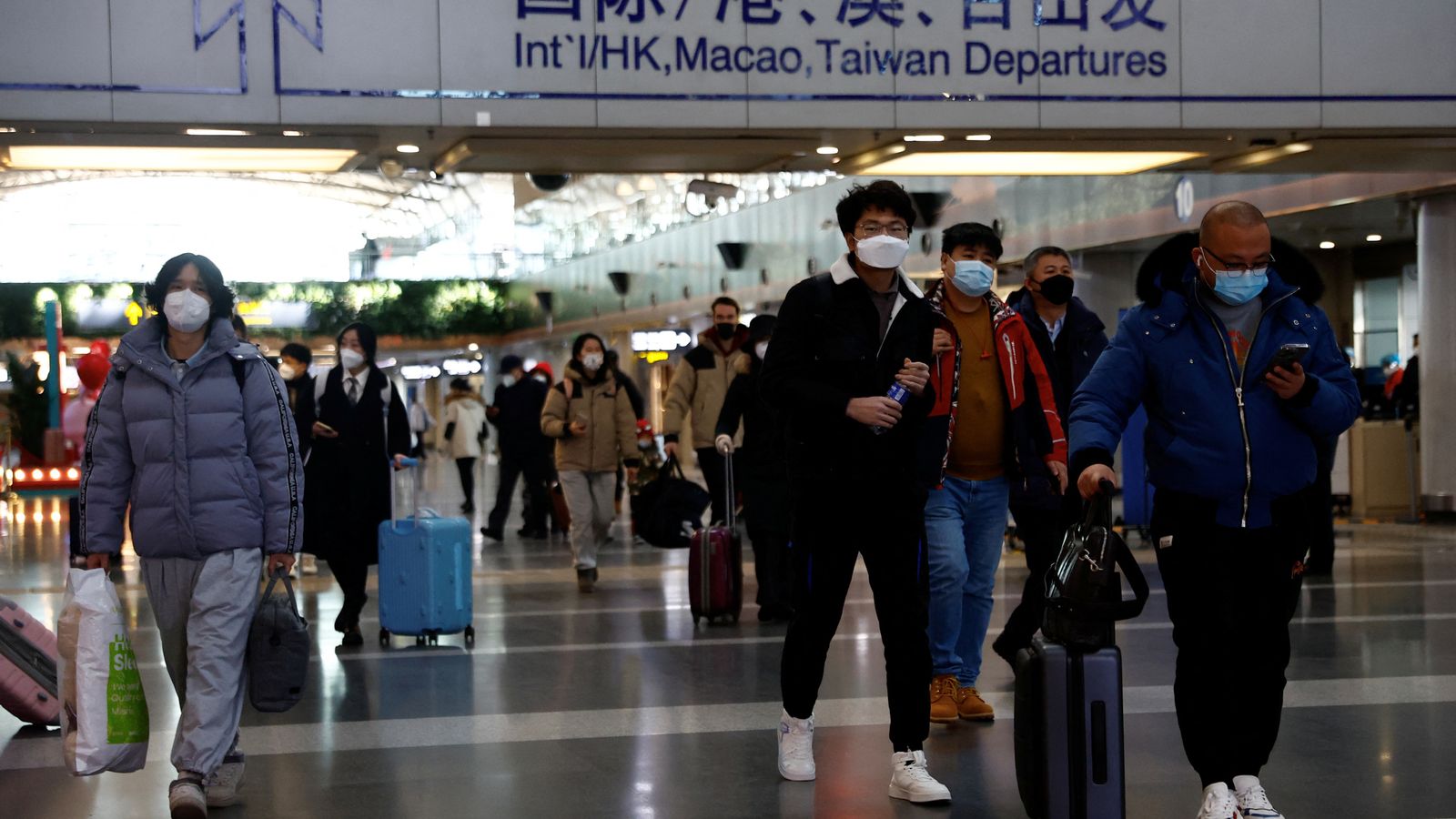People arriving in England from mainland China will have to provide a negative COVID test before flying, the government has said.
A growing list of countries, including the US, have announced similar rules in recent days.
The Department of Health and Social Care said the “precautionary and temporary” measure would take effect from 5 January.
The negative test must have been done no more than two days before departure.
Some arrivals will also be tested for potential new COVID variants, although it’s believed those circulating in China are the same as in the UK and the rest of Europe.
The government said it was working with the administrations in Wales, Scotland and Northern Ireland to get the same rules in place there.
However, there are no direct flights to those nations from China.
There has been a surge in infections in China after it rowed back some of its notoriously tough coronavirus rules, such as regular PCR testing.
With its border controls also being eased next week and more people set to travel abroad, there are worries it could lead to an increase in global cases.
Officials estimated 250 million people are likely to have contracted the virus in the first 20 days of December, according to leaked notes.
Shanghai last week had 5.43 million positive cases but the true number may be much higher as asymptomatic cases are no longer recorded.
China has been hit with the new rules because of “a lack of comprehensive health information”, the Department of Health said.
It added: “The situation remains under review and the UK is working with China on next steps. If there are improvements in information sharing and greater transparency, then temporary measures will be reviewed.”
Health Secretary Steve Barclay said the country was taking a “balanced and precautionary approach”.
Professor Susan Hopkins, chief medical advisor at the UK Health Security Agency, said the rise in cases in China was believed to be “due to low natural immunity and lower vaccine uptake including boosters rather than the emergence of new COVID-19 variants”.
Spain, Italy, Japan, South Korea, the US and India are among those to have recently introduced new rules on arrivals from the country.
On Friday, France’s transport minister said it would also bring in changes from 1 January.
Negative tests will be needed before flying from China, masks must be worn on the plane and tests will be carried out on arrival in France.
The European Union’s health agency has said the introduction of mandatory COVID screenings of travellers from China is “unjustified”.
Reacting to the UK government announcement, Tory MP Craig Mackinlay said he was “opposed to new, creeping moves towards restrictions and lockdowns” but “preventing entry to positive cases is a sensible move”.
Read more:
Is UK risking new variants without action on Chinese travellers?
Zero-COVID U-turn means infection rate will be shrouded in secrecy
Half of passengers on China flight to Italy have COVID
China has rejected criticism of its COVID data and said it expects future mutations to be potentially more transmissible but less severe.
The country’s own requirement for international travellers to quarantine is ending on 8 January. It’s thought to no longer be effective given the high number of infections now circulating within the country.
However, incoming travellers will still need to show a negative test before departure.
China’s loosening of the rules followed a rare wave of protests over the country’s COVID laws that appeared to surprise its leaders.
There are fears the increase in cases there could lead to many deaths because of the relatively low percentage of elderly and vulnerable people who are fully vaccinated.
